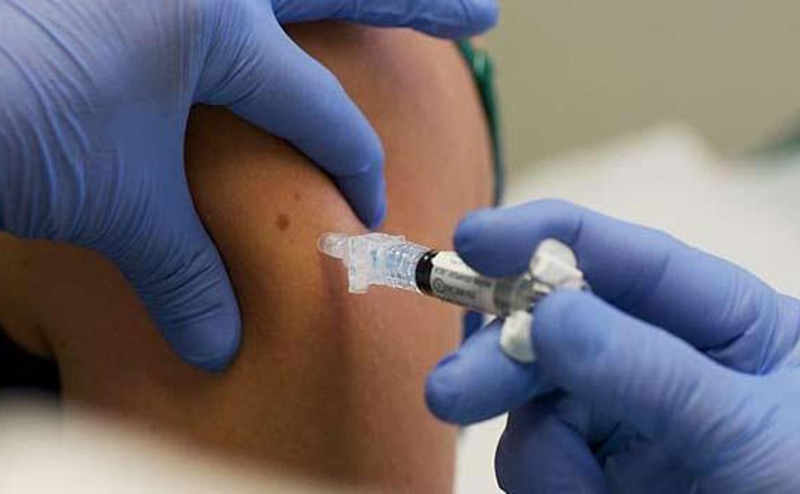The scarcity of the needed vaccines to stem the growing epidemic of cerebrospinal meningitis (CSM) is causing more deaths and spread of the disease to more states.
The new outbreaks are caused by new strains of CSM, Neisseria meningitidis serogroup C (NmC), the vaccines for which are not commercially available and need to be acquired through a special process managed by the World Health Organisation (WHO).
As the country does not have enough vaccine doses to deal with the deadly meningitis outbreak, and the drugs are too expensive at the cost of $50 (N18,000) per dose, more Nigerians may die from the disease. This is especially so since the means of livelihood of the majority of the citizens have been eroded by the current economic recession and the $50 which is the cost of the meningitis drugs per dose is the national minimum wage.
The Chief Executive Officer (CEO) of Nigeria Centre for Disease Control (NCDC), Dr. Chikwe Ihekweazu, told The Guardian that the country urgently needed 1.3 million doses to meet its immediate targets but had taken delivery of only 500,000, which it plans to deploy in Zamfara State on April 7, 2017. Ihekweazu, however, said the country was expecting another batch of 800,000 doses this week.
This means that the country needs to spend not less than $65 million (N23.4 billion) to meet its needs.
Ihekweazu said the coordinating agencies would be meeting Monday afternoon to assess the situation and official statement would be released later in the evening.
The last official figures from the Federal Government through the Federal Ministry of Health (FMoH) and NCDC put the death toll in the current meningitis epidemic at 328 ( as at Saturday) from 278 on Thursday last week even as 2,524 persons were affected (as at Saturday) from 1,966 people on Thursday. Also, the epidemic had spread from six states on Tuesday last week to 16 states by Saturday, four days later.
There is the fear that the epidemic might have spread to more states and killed many more Nigerians because of the delay in deploying the vaccines and the conditions of living in most communities in the country that encourage the transmission of the disease.
According to the WHO, the bacteria are transmitted from person-to-person through droplets of respiratory or throat secretions from carriers. Close and prolonged contact – such as kissing, sneezing or coughing on someone, or living in close quarters (such as a dormitory, sharing eating or drinking utensils) with an infected person (a carrier) – facilitates the spread of the disease. The average incubation period is four days, but can range between two and 10 days.
Neisseria meningitidis infects only humans; there is no animal reservoir. The bacteria can be carried in the throat and sometimes, for reasons not fully understood, can overwhelm the body’s defences allowing infection to spread through the bloodstream to the brain. It is believed that 10 per cent to 20 per cent of the population carries Neisseria meningitidis in their throat at any given time. However, the carriage rate may be higher in epidemic situations.
The most common symptoms are a stiff neck, high fever, sensitivity to light, confusion, headaches and vomiting. Even when the disease is diagnosed early and adequate treatment is started, five per cent to 10 per cent of patients die, typically within 24 to 48 hours after the onset of symptoms. Bacterial meningitis may result in brain damage, hearing loss or a learning disability in 10 per cent to 20 per cent of survivors. A less common but even more severe (often fatal) form of meningococcal disease is meningococcal septicaemia, which is characterised by a haemorrhagic rash and rapid circulatory collapse.
Acting Director-General of the National Primary Health Care Development Agency (NPHCDA), Dr. Emmanuel Odu, said $1.1 billion was required for the vaccination of 22 million persons in the states affected.
Odu who briefed the Senate Committee on Primary Healthcare and Communicable Diseases on efforts being made to contain the outbreak, said each vaccine could cost between $30 and $50.
The committee declared that the spread across the country was caused by poor awareness campaigns of relevant government agencies. It promised to provide the necessary support to the Ministry of Health to contain and end the outbreak.
At another meeting with Ihekweazu, the Senate committee chairman, Mao Ohuabunwa (Abia North) lamented that awareness remained low across the country.
“If this had been detected early, then we would have had rounds of vaccinations and would not be having this epidemic,” he said.
Senate President Bukola Saraki has assured that the upper chamber would provide the necessary support to the Ministry of Health to end the outbreak.
Saraki, in a series of tweets on his twitter handle, said he had spoken with the Minister of Health, Prof. Isaac Adewole, to assure him of the Senate’s commitment to help end the epidemic.
As part of efforts to contain the spread of the disease and prevent deaths, the Lagos State government yesterday alerted members of the public to the dangers and urged them to report any suspected case to the nearest public health facility.
Commissioner for Health, Dr. Jide Idris, said that no case of CSM has been recorded in the state contrary to media report. “However as a responsive government, we deem it fit to alert the public,” he said.
In a statement, Idris noted that though, seasonal meningitis outbreak usually affects the mainly Northern states that fall within the meningitis belt of the country, it is not impossible that outbreaks can occur in any part of the country, Lagos inclusive, in view of the phenomenal climatic change as well as the high human migration.
The Kwara State government has deplored epidemiologists to all its local government areas in readiness for any outbreak of the Meningitis in any part of the state.
At least two epidemiologists were sent to each council just as the government has rejigged its Notifications and Surveillance Unit in Ilorin, which at present is headed by the Commissioner for Health Alhaji Atolagbe Alege.
Guardian
This page has been viewed 318 times
Tags : Editors choice






























